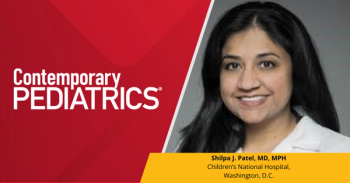
Parents and health care providers need to cheerlead the HPV vaccine for their teens
The human papillomavirus (HPV) vaccine is the key to a major public health victory, but the vaccine coverage has been less than effective. A report offers some answer to how parental intent has made an impact.
The human papillomavirus (HPV) vaccine has been a public health victory and some countries are close to making cervical cancer a thing of the past because of it. However, in the United States, the uptake of the vaccine is largely dependent on parents. A report that aims to quantify parental intentions to start and complete the HPV vaccine in the United States
Investigators did a cross-sectional study that used data from the adolescent component of the 2017-2018 National Immunization Survey. The study participants were parents or caregivers of US teenagers aged 13 to 17 years. The study’s primary outcome was the parent’s intent to vaccinate the teenager for HPV in the next year. The secondary outcomes were the prevalence of reasons that were given for the lack to either initiate or finish the HPV vaccine series and the relationship between being given a recommendation to vaccinate and the intent to initiate the HPV vaccine series.
The survey was completed by 82,297 parents or caregivers. Among their children, 30,558 were had received no HPV vaccine doses and 9073 had received only one HPV vaccine dose. Fifty-eight percent of the parents to unvaccinated children who also had data on parental intent said that they had no intention of initiating the vaccine. Among the parents who had initiated the series and had data on parental intent, 23.5% said that they did not intend to complete the HPV vaccine series.
Among the reasons given for the lack of intent to initiate the HPV vaccine series was safety concerns (22.8%); a lack of recommendation from a health care provider (22.2%) was the most frequent reason given for parents who did not intend to finish the HPV vaccine series. Among the unvaccinated adolescents, 60.6% of the parents who had a recommendation from a health care provider and data available on parental intent had no intent to begin the HPV vaccine series.
The researchers concluded that a lack of parental intent to start and finish the HPV vaccine series remains a major public health concern in the United States. Two ways to improve the HPV vaccination coverage in the country should include targeting vaccine safety concerns as well as strong, clear recommendations from health care providers.
Reference
1. Sonawane K, Zhu Y, Montealegre JR, et al. Parental intent to initiate and complete the human papillomavirus vaccine series in the USA: a nationwide, cross-sectional survey. The Lancet Public Health. July 21, 2020. Epub ahed of print. doi:10.1016/s2468-2667(20)30139-0
Newsletter
Access practical, evidence-based guidance to support better care for our youngest patients. Join our email list for the latest clinical updates.








